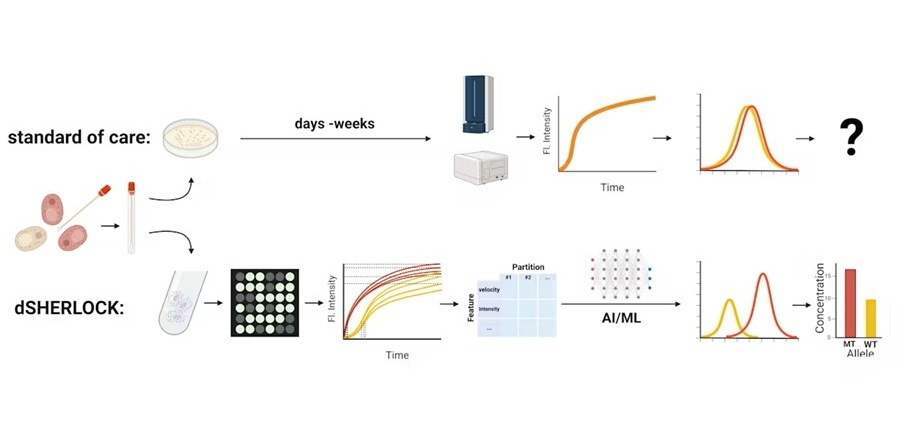Molecular Tests Prevents Cervical Cancer
By LabMedica International staff writers
Posted on 28 Dec 2011
The human papillomavirus (HPV) DNA test is the optimum cervical cancer screening option for women over the age of 29. Posted on 28 Dec 2011
The HPV DNA test prevents more cervical cancers than cytology alone, and detects lesions, which cause cervical cancer earlier by identifying precancerous high-grade cervical lesion.
A trial conducted by the Vrije Universiteit (VU) University Medical Center (Amsterdam, The Netherlands) examined almost 45,000 Dutch women aged between 29 to 56 years attending routine cervical screening. The team examined the best age for starting HPV testing, and determined whether the test resulted in fewer high-grade cervical lesions and cervical cancer in the subsequent screening as a result of earlier detection and treatment of lesions.
Study participants were randomly assigned at the beginning of the investigation to receive either cytology alone, or HPV DNA testing as well as cytology. Five years later at the second screening, all women received HPV and cytology testing. The researchers found that HPV testing in the first screen identified considerably more cancer precursors, cervical intraepithelial neoplasia grade 2 or worse (CIN2+) compared with cytology alone. At the second screening 5 years later, considerably fewer women in the HPV group had CIN grade 3 or worse (CIN3+) lesions and cervical cancer than women who received cytology alone at their first screening.
In the HPV group, the enhanced protection against CIN3+ was primarily due to high-grade cervical lesions caused by HPV16, one of the principal cancer-causing HPV types, being detected earlier. These results suggest that the test could eventually lower cancer-related morbidity and mortality. The team discovered that the cumulative detection of CIN2+ and CIN3+ when both screenings were combined did not vary between women aged 29 to 33 years and those aged over 33, suggesting that the test did not result in over-diagnosis of regressive CIN2+ lesions in younger women.
The scientists concluded that implementation of HPV DNA testing in cervical screening leads to earlier detection of clinically relevant CIN grade 2 or worse, which when adequately treated, improves protection against CIN grade 3 or worse and cervical cancer. The results lend support to the implementation of HPV DNA testing in programmed cervical screening starting at age 30 years. The study was published on December 15, 2011, in the journal Lancet Oncology.
Related Links:
Vrije Universiteit (VU) University Medical Center













